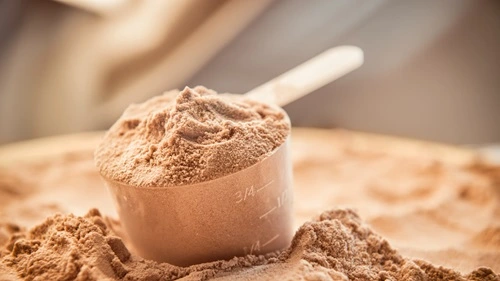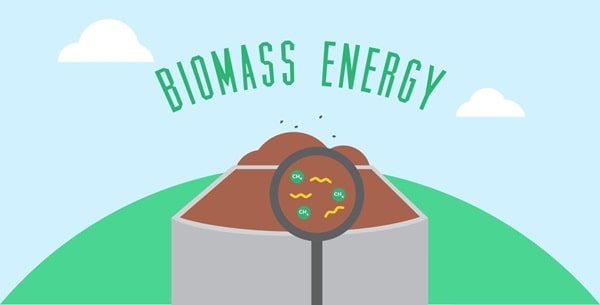Protein is an essential macronutrient that plays a vital role in the growth, repair, and maintenance of our bodies. It’s found in a variety of foods and is crucial for overall health. While many people are aware of the importance of protein in their diets, there are numerous fascinating facts about this nutrient that may surprise you. Here are over 10 fun facts about protein that highlight its significance and versatility in our diets.

1. Proteins Are Made Up of Amino Acids
Proteins are composed of smaller units called amino acids, which are linked together in specific sequences to form the protein’s structure. There are 20 different amino acids, 9 of which are considered essential, meaning our bodies cannot produce them and must obtain them from food. Complete proteins, such as those found in animal products (meat, fish, dairy), contain all nine essential amino acids, while most plant-based proteins (like beans, lentils, and nuts) may lack one or more. However, by combining different plant sources, you can create a complete protein profile.
2. Protein Is Vital for Muscle Growth and Repair
One of the most recognized roles of protein is its contribution to muscle growth and repair. After exercise, protein helps repair damaged muscle fibers, allowing them to grow stronger and larger. This is why athletes and fitness enthusiasts often emphasize protein intake as part of their training regimen. Consuming protein-rich foods after workouts can enhance recovery and promote muscle synthesis.
3. Protein Helps with Weight Management
Including adequate protein in your diet can be beneficial for weight management. Protein is more satiating than carbohydrates or fats, meaning it can help you feel fuller for longer. This satiety can reduce overall calorie intake and curb cravings, making it easier to stick to a healthy eating plan. Additionally, the thermic effect of food (TEF) is higher for protein; it requires more energy to digest and metabolize, which can also aid in weight management.
4. Protein Plays a Role in Immune Function
Proteins are crucial for a healthy immune system. Antibodies, which help defend the body against infections, are proteins. They recognize and neutralize foreign invaders like bacteria and viruses. Adequate protein intake supports the production of these antibodies, enhancing the body’s ability to fight off illness. This is particularly important for individuals recovering from illness or surgery, as their protein needs may increase during these times.
5. Animal-Based Proteins vs. Plant-Based Proteins
Animal-based proteins, such as those found in meat, fish, eggs, and dairy, typically contain all essential amino acids and are considered complete proteins. Plant-based proteins, found in legumes, grains, nuts, and seeds, often lack one or more essential amino acids but can still be a great source of protein when consumed in variety. Popular plant-based sources include quinoa, tofu, lentils, chickpeas, and nuts. The shift toward plant-based diets has increased interest in combining different plant proteins to achieve a complete amino acid profile.
6. Protein Needs Vary by Age and Activity Level
The amount of protein an individual needs varies based on several factors, including age, sex, and activity level. The Recommended Dietary Allowance (RDA) for protein is 0.8 grams per kilogram of body weight for sedentary adults. However, athletes, pregnant women, and older adults may require more protein to support their specific needs. For instance, athletes often aim for 1.2 to 2.0 grams of protein per kilogram of body weight to aid in recovery and muscle building.
7. Some Protein Sources Are Rich in Other Nutrients
Many protein-rich foods come with added nutritional benefits. For example, fatty fish like salmon and mackerel provide high-quality protein and are also rich in omega-3 fatty acids, which support heart health. Similarly, legumes not only offer protein but are also a good source of fiber, vitamins, and minerals. Choosing nutrient-dense protein sources can enhance your overall diet and provide additional health benefits.
8. Excess Protein Can Have Side Effects
While protein is essential for health, consuming excessively high amounts may lead to side effects, particularly for individuals with kidney disease. The body can only use a certain amount of protein, and excess protein intake can place added stress on the kidneys, which are responsible for filtering waste products. It’s important to balance protein intake with other macronutrients and consult a healthcare professional if you have concerns about your protein consumption.
9. Protein Can Be Found in Unexpected Foods
While we often think of meat, dairy, and eggs as primary protein sources, many unexpected foods also contain protein. For example, vegetables like broccoli, spinach, and Brussels sprouts contain smaller amounts of protein, contributing to overall intake. Grains such as quinoa and oats also have a decent protein content. Even snacks like peanut butter and certain protein bars can be excellent sources of protein. Exploring diverse food options can help you meet your protein needs.
10. Protein Is Crucial for Skin, Hair, and Nail Health
Protein plays a vital role in maintaining healthy skin, hair, and nails. Collagen, a type of protein, is a key component of skin structure, providing elasticity and firmness. Keratin, another protein, is essential for hair and nail strength. Consuming adequate protein supports the body’s ability to produce these structural proteins, contributing to overall appearance and health. This connection highlights the importance of protein not just for muscles, but for maintaining beauty and vitality.
11. Protein Supplements Are Popular but Not Always Necessary
Protein supplements, such as powders and bars, have gained popularity, particularly among athletes and fitness enthusiasts looking to increase their protein intake conveniently. However, it’s essential to remember that most people can meet their protein needs through whole foods. Supplements may be useful in certain situations, such as post-workout recovery or for individuals with dietary restrictions, but they should not replace a balanced diet rich in diverse protein sources.
12. Protein Timing Matters for Muscle Growth
Recent research suggests that the timing of protein intake may be important for optimizing muscle growth and recovery. Consuming protein shortly after a workout, ideally within 30 minutes to two hours, can enhance muscle repair and growth. Spreading protein intake throughout the day, rather than consuming it all at once, may also be beneficial for maximizing muscle protein synthesis. This strategy is especially relevant for those looking to build muscle or improve athletic performance.
13. High-Protein Diets Can Benefit Certain Health Goals
High-protein diets have gained popularity for their potential benefits in weight loss and body composition. Research indicates that increasing protein intake can help preserve muscle mass during weight loss, improve satiety, and support metabolic health. However, it’s important to adopt a balanced approach, including various nutrients and fiber-rich foods, to ensure overall health and well-being.
14. Protein Needs Change with Life Stages
Protein requirements shift throughout life stages. Children and teenagers require more protein for growth and development, while older adults may need higher protein intake to help preserve muscle mass and strength as they age. Pregnancy and lactation also increase protein needs, as it supports fetal growth and milk production. Understanding these changes can help individuals adapt their diets accordingly to meet their unique protein needs.
15. Plant-Based Proteins Are on the Rise
The trend toward plant-based diets has led to a surge in the popularity of plant-based proteins, driven by health, environmental, and ethical considerations. Foods like lentils, chickpeas, quinoa, and tofu are becoming staples in many diets. Additionally, new plant-based protein products, such as pea protein and soy protein isolates, are gaining traction in the market, providing delicious and nutritious alternatives for individuals looking to reduce animal protein consumption.
Protein is an essential component of a balanced diet, playing a crucial role in numerous bodily functions, from muscle growth to immune health. Understanding the diverse sources and functions of protein can empower you to make informed dietary choices that support your overall well-being. Each of these fun facts about protein underscores its importance in our lives, highlighting the versatility and significance of this vital macronutrient. Whether you’re a meat lover, a vegetarian, or someone exploring a plant-based diet, incorporating a variety of protein sources can enhance your health and enrich your meals.


